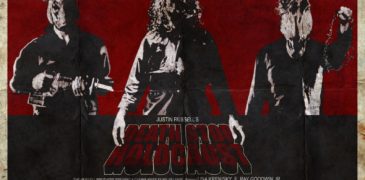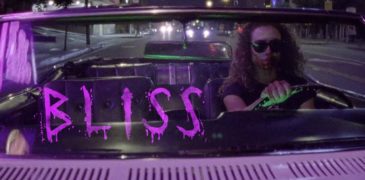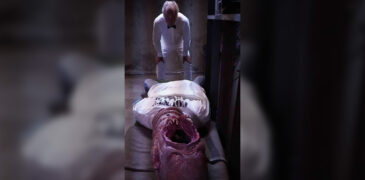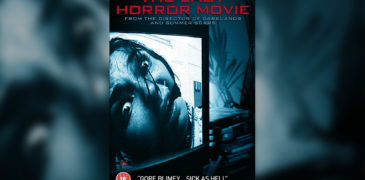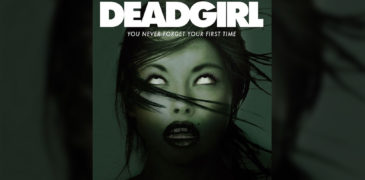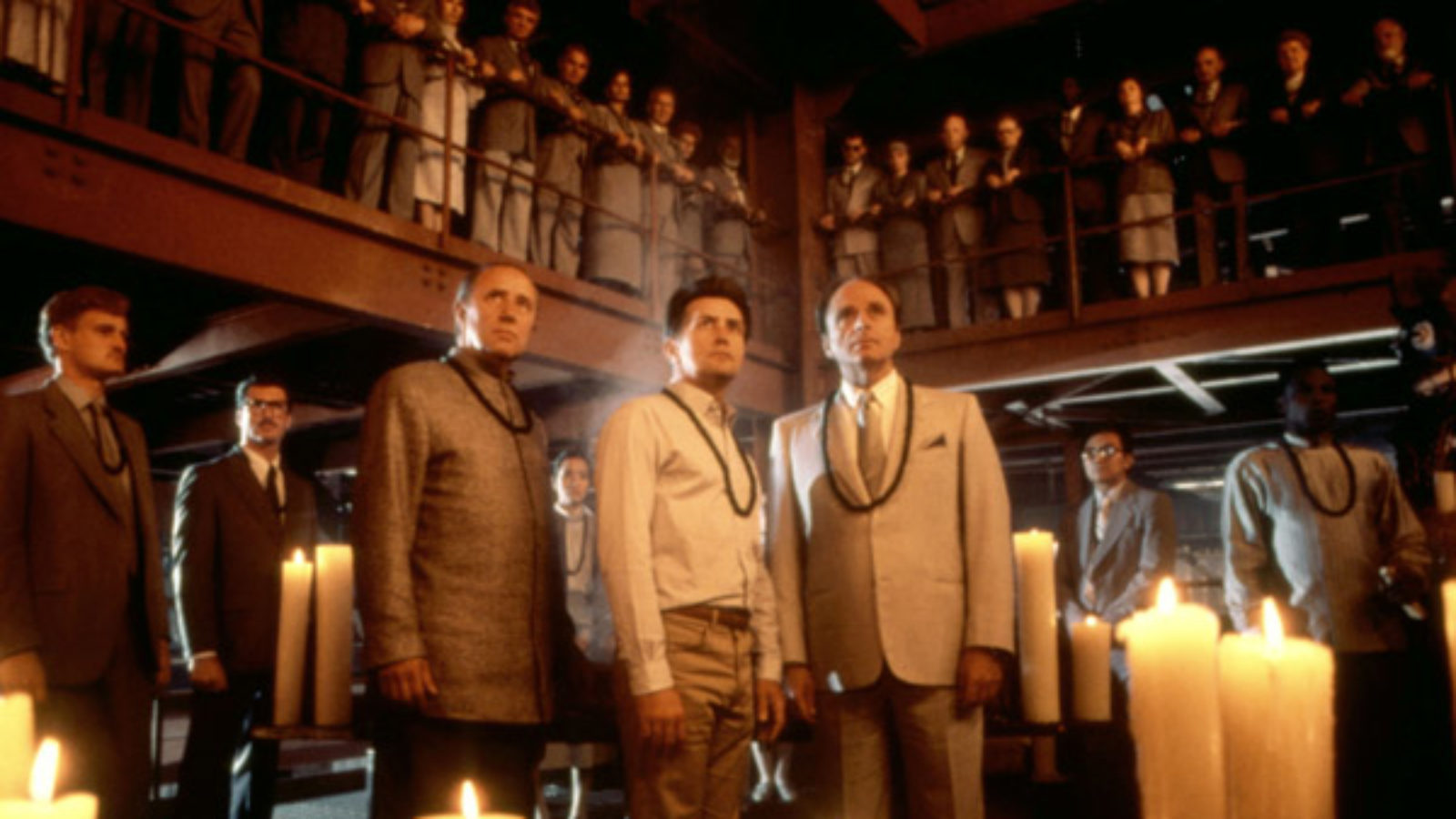
At the start of John Schlesinger’s 1987 horror film The Believers, police psychiatrist Cal Jamison (Martin Sheen) is having a quiet morning with his wife and child. Within minutes, a malfunctioning coffee maker electrocutes his wife, boiling her insides as she stands tremoring from the shocks. It has nothing to do with the rest of the film, it’s just a pre-opening stinger that also doubles as a pretty clear insight of what you’re in for: this film is gratuitous, fairly shameless and exploitative.
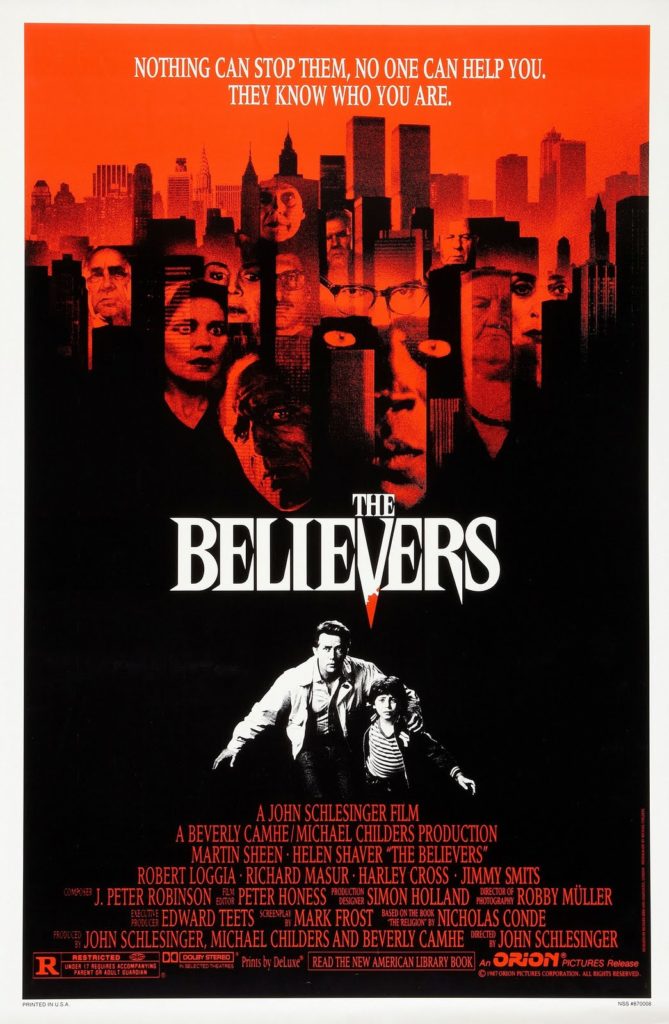
A year later, Jamison has relocated to New York City with his son, where a series of brutal child murders are plaguing the city. After a chance encounter with a paranoid, Cuban detective (Jimmy Smits), it becomes apparent that an ancient Caribbean religion with promises of great wealth has appealed to city’s elite, and no less than a Donald Trumpian construction magnate (Harris Yulin) is at the center of it.
Like Marathon Man and Midnight Cowboy, The Believers is interested less in the supernatural and more in the very human elements. They’re still there, as real as Dustin Hoffman’s method acting, but they’re not without a pretty heavy dose of camp. A scene in which Sheen’s friend spills some coffee creamer is heightened to absurdity when it sends Sheen into flashbacks of his wife’s untimely end. This would work if The Believers had a sense of humour, but it doesn’t.
There was a string of religious horror dating back from The Exorcist and its imitators, but the 80s brought about another, more human malignant threat: Yuppies. Reagan’s American “voodoo economics” takes on a very literal meaning when it becomes clear that the wealthy went all in on an evil, Caribbean cult (who hides its Satanic influence within the very normal practice of Santeria).
There’s no shortage of horror that came under fire for negative portrayals of religion and religious followings. From Silent Night, Deadly Night sparking protests for its murderous Santa to recent accusations against The Witches remake, there’s always a religious group ready to start a picket line.
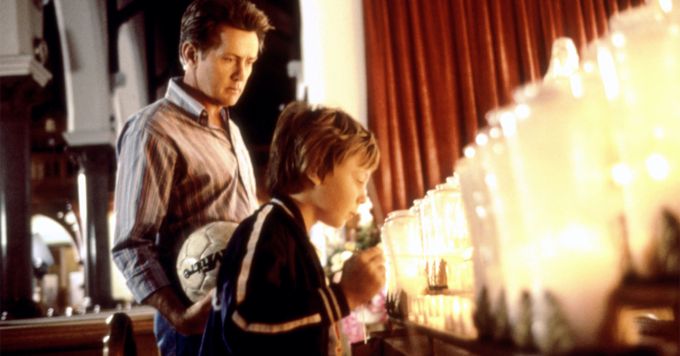
But The Believers, based on Nicholas Conde’s novel The Religion, seemed to take on a group without any understanding of the actual practices of Santeria. I’m surely as ignorant as most in the topic, as I am any other Caribbean practices, but I’m fairly certain there’s no pact with the devil that allows boils to burst out with spiders.
Some of what Schlesinger brings to the film works quite well, with Sheen, Robert Loggia and a particular game turn from Richard Masur grounding the more ridiculous aspects with some very real performances. But ultimately, at it’s core is a borderline racist message. Horror never has to adhere to any realities, but it’s always preferred when it sidesteps unnecessary controversy.
Removed from Santeria, The Believers has other problems. Some performances ring hollow, and the climax, as it is, feels unfinished. The final coda feels insignificant, like an add-on from production notes.
Still, there is something appealing about the idea of the wealthy sacrificing children’s blood in order to get ahead. In recent years, with the rise of the 1 per cent in the U.S. and the near-erasure of the middle class, it only hits closer to home today as it did under Reagan.
It’s just a shame it’s buried under a clumsy film that only deals in broad-strokes and excess.
This article was originally written by Kenny Hedges for Grimoire of Horror.
More Reviews:
DEATH STOP HOLOCAUST (2009) Film Review: Decent TEXAS CHAINSAW MASSACRE Homage
To me, Justin Russell is quite the underrated horror filmmaker, whose love for the genre shows in his work, such as the ’80s slasher homage, “The Sleeper” (2012). I wanted…
Film Review: Bliss (2019) – A Drug-Fueled Descent into Madness
I am all for horror that takes a new direction to its approach! With so many films using the same played-out premise with an interchangeable villain, I am happy to…
Mad Heidi (2022) Film Review – A Loving Look at the Discarded Exploitation Films of the 1970s
“Yodel me this!” – Heidi Long before home media and even longer before video streaming, the only way to see original movies was to go to the theater. Most theaters…
Unspeakable: Beyond the Wall of Sleep (2024) Film Review – An Inventive Yet Deferential Reimagining
Unspeakable: Beyond the Wall of Sleep is a 2024 horror film, written and Directed by Chad Ferrin. The film is an adaptation of H.P. Lovecraft’s short story Beyond The Wall…
The Last Horror Movie (2003) Film Review – A Character Study in Murder
The Last Horror Movie is a 2003 British found footage horror mockumentary, written by James Handel and directed by Julian Richards. Beginning his career with the award-winning shorts Pirates (1987),…
Deadgirl (2008) Film Review – An Intriguing Re-imagining of the Zombie Genre
Deadgirl (2008) is an American extreme horror film written by Trent Haaga and directed by Marcel Sarmiento and Gadi Harel. Beginning his directing career with It’s Better to Be Wanted…
